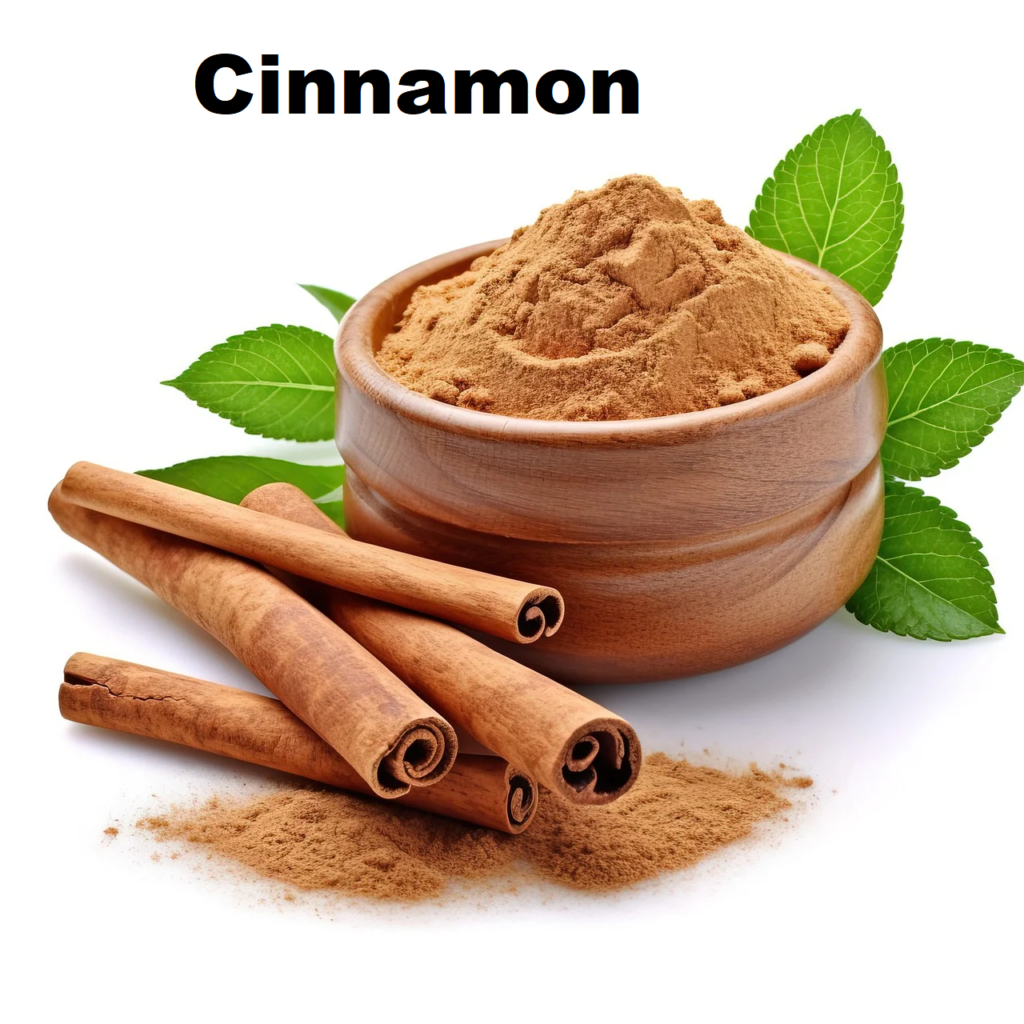Cinnamon in Yoruba: What is Cinnamon Called in Yoruba
You are searching for Cinnamon in Yoruba, look no further, here is the meaning, benefits and what Cinnamon in Yoruba language is called.

What is Cinnamon Called in Yoruba Language?
Cinnamon, a spice derived from the inner bark of trees from the genus Cinnamomum, is renowned worldwide for its distinctive flavor and medicinal properties. In various cultures, it is integrated into culinary practices and traditional medicine. However, for those interested in the linguistic and cultural aspects of this spice, particularly within the Yoruba-speaking regions of Nigeria, the question often arises: What is cinnamon called in the Yoruba language?
Cinnamon in Yoruba: Introduction
Cinnamon is referred to as “Oloorun” or “Eru Alamo” in the Yoruba language. These terms reflect the cultural and botanical significance of the spice within Yoruba communities. To understand the full context and importance of cinnamon in Yoruba culture, it is essential to delve into the linguistic, culinary, medicinal, and cultural dimensions associated with this spice.
See Also: Spiritual Meaning Of Someone Giving You Money In The Dream
Linguistic Aspects
Yoruba Language Overview
The Yoruba language is a Niger-Congo language spoken predominantly in southwestern Nigeria and parts of Benin and Togo. It is rich in proverbs, folklore, and traditional wisdom, reflecting the deep cultural heritage of the Yoruba people. In Yoruba, many words are descriptive, often giving insight into the properties or uses of the item in question.
Etymology of “Oloorun” and “Eru Alamo”
- Oloorun: This term can be broken down into “Olo,” meaning “owner” or “possessor,” and “orun,” meaning “sweet smell” or “fragrance.” Hence, “Oloorun” can be interpreted as “the one with a sweet fragrance,” aptly describing cinnamon’s aromatic qualities.
- Eru Alamo: This phrase directly translates to “the bark of Alamo.” In Yoruba traditional medicine, “Alamo” refers to a category of medicinal plants, indicating cinnamon’s role in herbal remedies.
Culinary Uses of Cinnamon in Yoruba Culture
Traditional Dishes
Cinnamon, or “Oloorun,” plays a significant role in Yoruba cuisine. Although it is not as commonly used as some other spices, it adds a unique flavor to various traditional dishes. Some common uses include:
- Spiced Stews and Soups: Adding “Oloorun” to stews (like “Obe” or “Ofe”) enhances the flavor profile, giving the dish a warm, sweet undertone.
- Baked Goods and Desserts: In Yoruba baking traditions, especially during festive seasons, cinnamon is used in pastries and sweet treats, akin to how it is used globally.
Beverage Enhancements
In Yoruba culture, herbal teas and drinks are popular, particularly those with medicinal properties. “Oloorun” is often included in these beverages for its aromatic qualities and health benefits. For example, a tea made from ginger, honey, and cinnamon is common for soothing the throat and aiding digestion.
See Also: What is Constitution: Types of Constitution | Sources of Constitution
Medicinal Uses of Cinnamon in Yoruba Traditional Medicine
Herbal Remedies
Cinnamon has a long history of use in Yoruba traditional medicine, where it is valued for its numerous health benefits. The bark of the cinnamon tree, “Eru Alamo,” is used in various forms, including powders, infusions, and extracts. Some traditional uses include:
- Digestive Health: Cinnamon is known to aid digestion and alleviate stomach discomfort. Yoruba herbalists often recommend it for indigestion and bloating.
- Anti-inflammatory Properties: Due to its anti-inflammatory effects, “Oloorun” is used to treat conditions like arthritis and muscle pain.
- Blood Sugar Regulation: There is a traditional belief in the efficacy of cinnamon for managing blood sugar levels, which aligns with modern scientific findings.
Integration with Other Herbs
In Yoruba herbal medicine, cinnamon is frequently combined with other herbs to enhance its therapeutic effects. For example, a mixture of cinnamon, ginger, and cloves may be used to boost immunity and fight off infections.
Cultural Significance of Cinnamon in Yoruba Society
Symbolism and Beliefs
In Yoruba culture, cinnamon is more than just a spice; it holds symbolic meanings and is sometimes used in spiritual practices. The sweet fragrance of “Oloorun” is believed to attract positive energy and ward off negative influences.
Festivals and Rituals
During certain festivals and rituals, cinnamon is used for its aromatic qualities. For instance, during weddings or naming ceremonies, burning cinnamon might be part of the practices to create a pleasant atmosphere and invoke blessings.
Economic Importance
Cinnamon, while not native to Nigeria, is imported and traded within Yoruba markets. It has economic significance as it is sold in various forms—sticks, powders, and extracts—catering to both culinary and medicinal needs.
Modern Uses and Adaptations
Contemporary Cuisine
In modern Yoruba cuisine, cinnamon is becoming increasingly popular, influenced by global culinary trends. Chefs and home cooks experiment with cinnamon in both traditional and fusion dishes, expanding its culinary applications.
Health and Wellness Industry
With a growing interest in natural and holistic health, cinnamon’s use in the health and wellness industry has surged. Products like cinnamon tea, essential oils, and supplements are gaining popularity among health-conscious consumers.
Research and Development
Ongoing research into the health benefits of cinnamon continues to validate its traditional uses. Studies on its anti-inflammatory, antioxidant, and antimicrobial properties support its incorporation into modern medicine and wellness practices.
See Also: Top 10 Functions Of State Security Service Of Nigeria
Benefits Of Cinnamon
Here’s a list of the benefits of cinnamon, known as “Oloorun” or “Eru Alamo” in Yoruba culture:
Health Benefits
1. Antioxidant Properties
Cinnamon is rich in powerful antioxidants, such as polyphenols, which help protect the body from oxidative damage caused by free radicals.
2. Anti-Inflammatory Effects
Cinnamon contains anti-inflammatory compounds that help reduce swelling and inflammation in the body, beneficial for conditions like arthritis and other inflammatory diseases.
3. Blood Sugar Regulation
This makes it beneficial for managing type 2 diabetes and preventing insulin resistance.
4. Heart Health
Cinnamon has been shown to reduce levels of total cholesterol, LDL (bad cholesterol), and triglycerides, while maintaining stable HDL (good cholesterol) levels. This supports cardiovascular health and reduces the risk of heart disease.
5. Antimicrobial Properties
It is effective against common pathogens, helping to boost the immune system.
6. Improved Digestive Health
Cinnamon aids in digestion by enhancing the breakdown of food in the stomach and promoting the secretion of digestive enzymes. It can also alleviate indigestion, bloating, and other digestive issues.
7. Weight Loss Support
By improving metabolism and stabilizing blood sugar levels, cinnamon can aid in weight management and help reduce cravings for sugary foods.
8. Neuroprotective Benefits
Cinnamon may help protect brain function and reduce the risk of neurodegenerative diseases like Alzheimer’s and Parkinson’s by inhibiting the buildup of tau protein in the brain and improving cognitive function.
9. Anti-Cancer Properties
Some studies suggest that cinnamon extracts can inhibit the growth of cancer cells and tumors, particularly in the colon. This is attributed to its antioxidant and anti-inflammatory effects.
10. Anti-Aging Effects
The antioxidant properties of cinnamon help combat the signs of aging, protecting the skin from damage caused by free radicals and promoting a youthful appearance.
See Also: Which Is Correct, Condolence Or Condolences? Answered
Culinary Benefits
11. Flavor Enhancement
Cinnamon adds a warm, sweet, and aromatic flavor to a variety of dishes, from savory stews and soups to sweet desserts and baked goods, enhancing their taste and complexity.
12. Versatility in Cooking
Cinnamon can be used in various forms—whole sticks, ground powder, or as an extract—in a wide range of culinary applications, making it a versatile ingredient in both traditional and modern cuisines.
13. Natural Preservative
Cinnamon’s antimicrobial properties make it a natural preservative, helping to extend the shelf life of foods by preventing bacterial and fungal growth.
Cultural and Economic Benefits
14. Cultural Significance
In Yoruba culture, cinnamon is used in rituals and ceremonies for its pleasant aroma and symbolic meanings, such as attracting positive energy and warding off negativity.
15. Economic Value
Cinnamon is an important commodity in local markets, contributing to the economy through its sale in various forms—sticks, powders, and extracts—used in culinary and medicinal practices.
16. Traditional Medicine
Cinnamon is a staple in Yoruba traditional medicine, where it is valued for its health benefits and used in various herbal remedies to treat a range of ailments, from digestive issues to inflammatory conditions.
Wellness and Lifestyle Benefits
17. Aromatic Benefits
The pleasant aroma of cinnamon can enhance mood and reduce stress, making it a popular ingredient in aromatherapy and relaxation practices.
18. Skin Care
Cinnamon’s antimicrobial and antioxidant properties make it beneficial in skincare products, helping to treat acne, reduce signs of aging, and promote healthy skin.
19. Hair Care
Cinnamon is used in hair care products for its ability to stimulate blood circulation in the scalp, promote hair growth, and improve hair health.
20. Household Uses
Cinnamon can be used as a natural air freshener or added to homemade cleaning solutions for its pleasant scent and antimicrobial properties, making it a valuable ingredient in household management.
See Also: What Does In Transit Mean Or On Transit? Which Is Correct? Answered
Conclusion
Cinnamon, known as “Oloorun” or “Eru Alamo” in Yoruba, holds a multifaceted place in Yoruba culture. From its use in traditional dishes and herbal remedies to its symbolic significance and economic value, cinnamon is deeply integrated into various aspects of Yoruba life. Understanding its name and role in the Yoruba language and culture not only enriches our appreciation of this versatile spice but also highlights the interconnectedness of language, culture, and natural resources. As both a culinary delight and a medicinal staple, cinnamon continues to be a valuable and cherished element in the rich tapestry of Yoruba heritage.
Kindly Share This Post: If you think this post can be helpful to somebody else, please share it using the buttons below!!!

